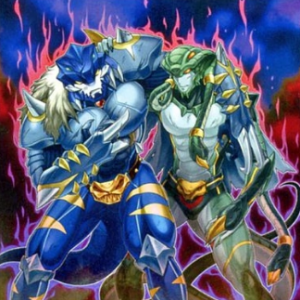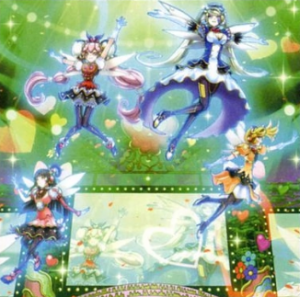Makes the Rounds End Faster
The most obvious change is that rounds will end almost immediately after 40 minutes. This is, I would assume, the initiative I imagine Konami was trying to make with this policy. Specifically, it would have most impact in regional and YCS tournaments, with an average of eight to ten rounds. Having large tournaments take longer is an actual concern. Most are run at card shops that have closing times and needs people to be there to function. Assuming at least one match goes into time each round, this could add up to thirty minutes each round. It's much more magnified at larger tournaments, making them into day long slogs.
We must also consider the judges that are vital in working large events. They have to come in before to set up, and stay after. Having the tournament end hours earlier makes judging much less of a 12+ hour grind.
With this being established, let’s analyze the minutiae of how this affects the duels themselves.
Convolutes the Natural Flow of the Game
What I mean is that by going into time, a duel is no longer about maintaining card advantage or making an unbreakable board. If you can do those things within five turns, then the duel may as well have went on as per usual. However, if that’s not the case, then it’s a race to inflict as much damage as possible. Clearly, the dynamics of the game change. Unfortunately, time procedures are necessary to make sure large tournaments can finish at all.
The state of the game is further convoluted with the new procedures. Once time is called, you are no longer guaranteed a proper match. In essence, the turns before the round ends become your “five turns.” If a player was in time pre-policy, and they were losing, they would most likely lose within the five turn extension. The difference is now, getting to time with a lead in Life Points only is a win condition, as opposed to an extension to the match.
Incentive to Stall

By creating a new win condition for an otherwise losing player, there is more incentive to take a long time between actions. Thankfully, you can call out slow play. But recently there is another way to stall matches. With Link-oriented decks, combos may take up to a few minutes at a time. At the moment, Trickstar Sky Striker and Gouki can excel at these stall tactics. Furthermore, there has been concern that Trickstar decks can take advantage of the new rules because of their burn effects. However, the degree to which this is true is still up for debate.
Are these Concerns Relevant?
That being said, this could be dismissed as "what if" scenarios. However, there are accounts of deck profiles in which top 32 duelists have mentioned the time rule has impacted their duels specifically. Koty Angeloff mentions that he won a game that he wouldn't have against Gouki, while Trif Gaming even sided Gagaga Cowboy in response to the time rule. He comments that it won him four games in time.
I'm not blaming these players for being aware of the rule change, but it goes without saying that the rule is relevant, as the players had topped YCS Secaucus.
Burn

The big concern many players had with the new policy is that Trickstar could take advantage of it. While this is certainly true and is a problem, it's not necessarily Trickstar's fault, but the rule itself to blame. Trickstars and its variants are clearly top tier decks, with or without the EoM policy.
What can be Done?
There are a few things you can do to minimize its negative impact. While I'd suggest this under the normal rule, wearing a watch to keep track of time is crucial. Most importantly, make sure to call out slow play when it's evident. Unfortunately, long-winded combos with the intent to waste time are perfectly legal, which further accentuates the flaws of this change. In time, we may have a better sense of when to call out the opponent for intentional stalling. Events seem increasingly more aggressive about giving disqualifications for abusing the rule.
Konami may or may not change the time rule. However, if you'd like to send Konami an email with concerns about the time tule, their email is [email protected].




